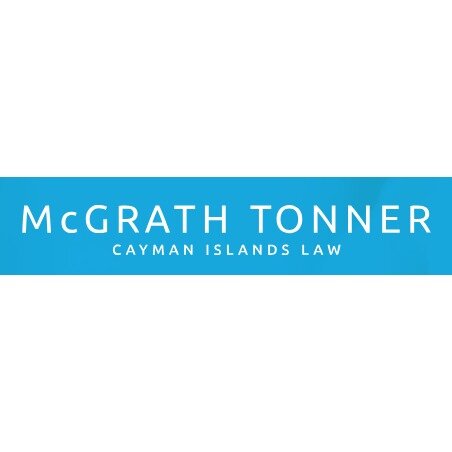Best DUI & DWI Lawyers in Cayman Islands
Share your needs with us, get contacted by law firms.
Free. Takes 2 min.
Or refine your search by selecting a city:
List of the best lawyers in Cayman Islands
About DUI & DWI Law in Cayman Islands
In the Cayman Islands, DUI (Driving Under the Influence) and DWI (Driving While Intoxicated) laws are enforced to ensure the safety of all road users. These laws make it illegal to operate a vehicle while impaired by alcohol or drugs. The legal blood alcohol content (BAC) limit is 0.100%, and exceeding this limit can result in severe penalties, including fines, license suspension, and even imprisonment. Law enforcement has the authority to conduct sobriety tests if they suspect a driver is impaired and the government actively promotes awareness to prevent driving under the influence.
Why You May Need a Lawyer
The complexities of DUI & DWI charges often necessitate expert legal representation. You may need a lawyer if you are facing charges and need to understand your rights and options. Key scenarios include if you are a first-time offender and unsure about the legal process, if you believe the charges are unjustified, or if there are aggravating factors like accidents or injuries. A knowledgeable lawyer can navigate the specifics of your case, potentially reduce penalties, or even contest charges based on procedural errors or mitigating circumstances.
Local Laws Overview
The Cayman Islands' laws regarding DUI and DWI are stringent, aiming to deter impaired driving. Key aspects include:
- The legal BAC limit is 0.100%, and exceeding it is punishable.
- Enhanced penalties apply if you're found to be driving under the influence within a school zone or causing bodily harm while impaired.
- Refusal to submit to a breathalyzer or field sobriety test can lead to automatic license suspension and additional penalties.
- Repeat offenders face increasingly severe consequences, including mandatory rehabilitation programs or imprisonment.
Frequently Asked Questions
What is the legal BAC limit in the Cayman Islands?
The legal blood alcohol content (BAC) limit is 0.100%.
Can I refuse a breathalyzer test?
While you can refuse, doing so results in automatic license suspension and potential additional penalties.
What are the penalties for a first-time DUI offense?
Penalties may include fines, a temporary driver's license suspension, mandatory alcohol education programs, and possibly a few days in jail.
How can a lawyer assist with a DUI case?
A lawyer can help by evaluating the case details, negotiating plea deals, defending you in court, and seeking the best possible outcome.
What if I’m an expatriate or tourist caught for a DUI in the Cayman Islands?
The laws apply equally to expatriates and tourists. A lawyer can help navigate the legal system and work on issues related to visas or international matters.
Is it true that penalties increase with consecutive offenses?
Yes, penalties escalate for subsequent offenses, often leading to longer suspensions and harsher fines.
Are there field sobriety tests utilized in the Cayman Islands?
Yes, law enforcement uses field sobriety tests alongside breathalyzer tests to ascertain impairment.
Can DUI charges be expunged from my record?
It may be possible, but it requires legal proceedings where a lawyer can determine eligibility based on your case specifics.
What happens if I cause an accident while driving under the influence?
Consequences are severe, especially if there are injuries or fatalities involved. This can lead to substantial fines, imprisonment, and civil lawsuits.
Which types of substances can impair my ability to drive?
This includes alcohol, controlled substances, prescription medications, and even certain over-the-counter drugs that affect motor skills or judgment.
Additional Resources
For those seeking further information or assistance, consider contacting the following:
- The Cayman Islands Department of Vehicle & Drivers' Licensing: Offers resources on legal requirements for drivers.
- The Cayman Islands Road Safety Advisory Council: Provides information on road safety initiatives and prevention tips.
- Legal Aid Services: For those unable to afford private legal counsel, exploring assistance through government-sponsored legal aid can be an option.
Next Steps
If you are facing DUI or DWI charges and require legal assistance, the following steps are recommended:
- Contact an experienced attorney who specializes in DUI & DWI cases in the Cayman Islands.
- Gather all available documentation related to the arrest, including police reports, any test results, and related correspondences.
- Understand your rights by discussing your case in a confidential setting with your attorney, who can guide you through the potential outcomes and defense strategies.
- Prepare for any court appearances with the guidance of your lawyer and ensure adherence to any legal obligations or conditions set forth in your case.
Lawzana helps you find the best lawyers and law firms in Cayman Islands through a curated and pre-screened list of qualified legal professionals. Our platform offers rankings and detailed profiles of attorneys and law firms, allowing you to compare based on practice areas, including DUI & DWI, experience, and client feedback.
Each profile includes a description of the firm's areas of practice, client reviews, team members and partners, year of establishment, spoken languages, office locations, contact information, social media presence, and any published articles or resources. Most firms on our platform speak English and are experienced in both local and international legal matters.
Get a quote from top-rated law firms in Cayman Islands — quickly, securely, and without unnecessary hassle.
Disclaimer:
The information provided on this page is for general informational purposes only and does not constitute legal advice. While we strive to ensure the accuracy and relevance of the content, legal information may change over time, and interpretations of the law can vary. You should always consult with a qualified legal professional for advice specific to your situation.
We disclaim all liability for actions taken or not taken based on the content of this page. If you believe any information is incorrect or outdated, please contact us, and we will review and update it where appropriate.
Browse dui & dwi law firms by city in Cayman Islands
Refine your search by selecting a city.










